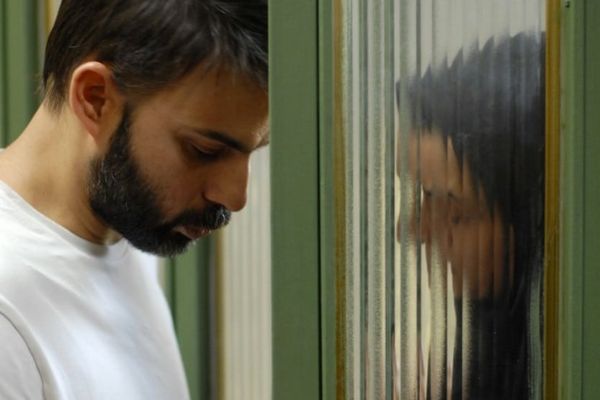Eye For Film >> Movies >> A Separation (2011) Film Review
A Separation
Reviewed by: Jennie Kermode

Nader and Simin meet in a courtroom. They have been married for 14 years but nobody mentions this. "Why do you want to get a divorce?" the judge asks. There is no simple answer. They like and respect each other. What has overwhelmed their relationship is something bigger than themselves, a clash of cultures, the values of different ages. Who can judge them? Placed in the judge's seat, the audience is invited to do so, but nothing here is simple.
We follow Nader (Peyman Moaadi) and Simin (Leila Hatami) as they embark upon a trial separation, she moving in with a mother who is sympathetic to both of them. Nader stays in the family home, caring for his elderly father, who has Alzheimer's disease. Simin wants to go and live abroad and is hoping that her daughter will decide to move away with her. Like most 11-year-olds, the daughter, Termeh (Sarina Farhadi) just wants her parents to get back together so they can live happily as they seemed to before. Her mother thinks she would have more opportunities abroad and that she will understand the value of that in time, but perhaps she underestimates the value to Termeh of friends and schoolwork and the culture she has grown up with.

Despite his devotion to his father, Nader cannot be there all the time. He employs Razieh (Sareh Bayat), a friend of a friend, to come in and look after the old man whilst he is away. But Razieh has problems of her own. A series of complications leads to tragedy and dangerous accusations. We are back in the courtroom. Every character seems duplicitous, yet every character is sympathetic. How can we judge them?
A Separation places this complex yet believable scenario in a context where characters cannot be understood in isolation from their surroundings. Despite the growing distance between Nader and Simin, nobody here is truly separate. Religious and traditional rules governing the interaction of men and women complicate things further, and old notions of honour seem to collide with simple principles like telling the truth, but if there is a critique here it is not a simple one. It certainly isn't political, with the state seen as distant and reasonably benign; a parade of beleaguered officials who just wish these people could sort themselves out. There is a sense that we are glimpsing a society in flux, that the difficulties the film encapsulates extend much further than these few people, and that there is no simple way to weigh up right and wrong.
Foreign audiences may find A Separation easier to engage with than much contemporary Iranian cinema. Bright and urban, its setting has a universal quality. There are many issues here that extend beyond Iranian culture. Termeh has learned in school that the people were historically divided into the upper and lower classes, but her family is plainly middle class, and unexamined prejudices about the working class people they engage with also serve to complicate the narrative. Though its subject may sound grim, the mood of the film is engaging as it prompts the viewer to ask questions. It's well acted, thoughtful, using a realistically messy scenario to draw together strong central themes. Unusual and well worth a look.
Reviewed on: 28 Jun 2011


















